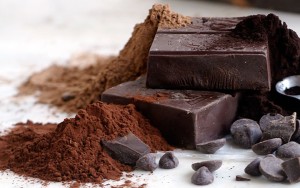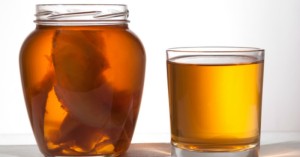Probiotics are forms of gut bacteria that help ‘rev up’ our natural digestive juices and enzymes that keep our digestive system in working order. We all know that we can take a fancy—and perhaps cost prohibitive—probiotic supplement, but it turns out there are also lots of different dietary sources of probiotics that we can all incorporate into our nutrition plans.
Below are just a few examples of some of the best and most readily available probiotic foods (preferably organic when possible) for us athletes to start adding to the weekly grocery list.
Yogurt
Look for brands of live-culture yogurt made from goat’s milk with added forms of probiotics (e.g. lactobacillus or acidophilus). Goat’s milk and cheese are especially high in probiotics like thermophillus, bifudus, bulgaricus and acidophilus. It is important to read the ingredients list since the quality of probiotics varies from brand to brand.
Kefir
Like yogurt, this fermented dairy product is a combination of goat’s milk and fermented kefir grains. It’s high in lactobacilli and bifidus bacteria as well as being rich in antioxidants. It’s a good idea to seek out a good organic version at a local health food shop if possible.
Dark Chocolate
 IMAGE SOURCE: WOMEN FITNESS
IMAGE SOURCE: WOMEN FITNESS
Good news to chocolate lovers everywhere! Probiotics can be added to high-quality dark chocolate.
Microalgae
This refers to super-food ocean-based plants like spirulina, chorella and blue-green algae. These guys have been shown to increase the amount of both Lactobacillus and bifidobacteria in the digestive tract. Not only that but they also provide the most amount of energetic return, per ounce, for the human system.
Miso Soup
Made from fermented rye, beans, rice or barley, this salty paste is full of lactobacilli and bifidus bacteria. Try adding a tablespoon of miso to some hot water to make an excellent, quick, probiotic-rich soup. Besides it’s probiotic qualities, miso is also extremely nutrient-dense and believed to help neutralize the effects of environmental pollution, alkalinize the body and stop the effects of carcinogens in the system.
Pickles
Surprisingly enough, the common green pickle is actually an excellent food source of probiotics.
Tempeh
Tempeh is a fermented, probiotic-rich grain made from soybeans and flattened into a patty. It is a great source of vitamin B12 and can be sautéed, baked or eaten crumbled on salads as a substitute for meat or tofu.
Kimchi
Kimchi is a Korean version of pickled sauerkraut and an extremely spicy and sour fermented cabbage, traditionally served alongside meals. Besides beneficial bacteria, it’s also a great source of beta-carotene, calcium, iron and vitamins A, C, B1 and B2. Kimchi is one of the best probiotic foods that we can add to our diets. It is quite spicy but can be found in a range of heat levels.
Kombucha Tea
 IMAGE SOURCE: OUR SMALL HOURS
IMAGE SOURCE: OUR SMALL HOURS
Kombucha is a type of fermented tea with a high amount of healthy gut bacteria. Like kimchi, this drink has been used for centuries as traditional foods rich in probiotics. It is believed to help increase energy, enhance well-being and maybe even weight-loss. A word of caution: kombucha may not be the best fit for everyone, especially those with candida issues.
Next time you’re making that extra healthy grocery list, don’t forget to add your good ol’ probiotics!

